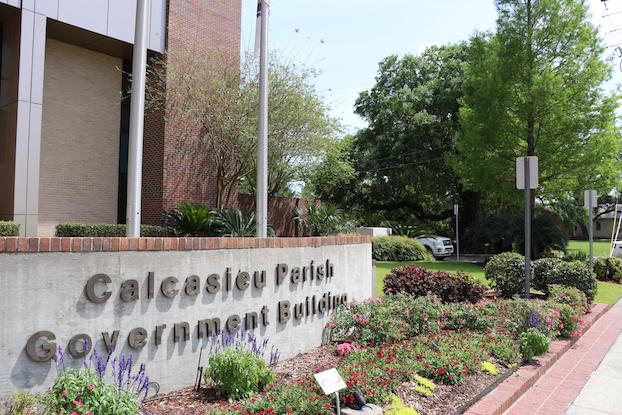Jim Beam column:Tax cuts aren’t trickling down
Published 6:52 am Saturday, September 30, 2023

- A candidate for Louisiana state treasurer says trickle-down economics isn't working in the state and explains why.(Photo courtesy of Investopedia).
“Our state is a classic trickle-down economics state,” according to Dustin Granger of Lake Charles, a financial adviser and investment manager who is one of three candidates for state treasurer on Oct. 14.
Some might want to know exactly what Granger is talking about. Humorist Will Rogers used trickle-down economics to describe President Herbert Hoover’s unsuccessful economic stimulus proposals that were designed to deal with the national Depression.
The theory behind trickle-down economics is when the wealthy get tax breaks, the benefits will trickle down to the needy. President Ronald Reagan made it famous with his “Reaganomics.”
Granger said during an American Press interview that Louisiana has been operating on trickle-down economics for 50-60 years and it accelerated with former Republican Gov. Bobby Jindal.
“You can’t come out of poverty and improve education until we start investing in people more and stop the giveaways at the very top — including ITEP (the Industrial Tax Exemption Program), cutting the income tax, getting rid of the estate tax — and it’s designed, in my opinion, to create budget crunches,” Granger said.
Financial Monthly used tax cuts by Reagan and former President George W. Bush to explain why trickle-down economics did not work in those instances. The tax cuts should have benefited all income levels, but the opposite happened.
“Between the years 1979 and 2005, the bottom fifth saw a 6% rise in after-tax household income,” the global news publication said. “While this on its own seems great, it’s important to note that the top fifth experienced an 80% increase in after-tax household income. The income of the top 1% tripled, showing that prosperity was trickling up rather than down.”
Granger said, “In a budget crunch, they cut public investment in health, education access, and infrastructure. When they can’t cut anymore, they end up raising taxes on working people through sales taxes because they never consider raising taxes at the personal income tax rate at the top. It happens over and over again.”
While that has been true most of the time, there was one major exception — passage of the Stelly Plan in 2002. It was a plan that raised state income taxes to make it possible to eliminate state sales taxes on food used for home consumption, natural gas, electricity, and water sold for residential use and prescription drugs.
The tax swap dropped state income taxes by $19 million in the first year, which made it more than revenue neutral. In the second year, income taxes were $12 million higher and were expected to be $35 million higher by 2005.
The late-Gov. Mike Foster supported the Stelly plan and called the victory the upset of the century. Unfortunately, the income tax increases were eliminated six years later during the Jindal administration. He had promised to veto the bill but changed his mind.
Stelly’s plan placed the sales taxes on food, utilities, and prescription drugs in the state constitution and the odds are they will never return. Unfortunately, those who wanted to reduce the income taxes often forget about that tradeoff.
After hearing about the income tax decrease in 2008, Stelly said, “They changed my plan; I hope they’re right. In hindsight, after six years of hearing the Stelly Plan debated both pro and con, my personal conclusion as the author and chief proponent of the plan, is as follows: I wouldn’t change a period or a comma.”
The nonpartisan Public Affairs Research Council of Louisiana said the loss of that increased income tax revenue would make the state more dependable on unpredictable revenue from oil and gas.
State revenues did change rapidly and higher education institutions were hit with the first of eight consecutive budget reductions within four years. The next four years saw the same result, and Democratic Gov. John Bel Edwards inherited a $2 billion deficit from the eight years of the Jindal administration when he took office in 2016.
Louisiana’s Republican-controlled Legislature has continued to reduce the income tax and the state continues to have one of the highest sales taxes in the country.
Granger calls reducing income taxes a never-ending downward spiral that leads to poverty and cuts in education.
“You can’t really come out of it until you reverse it,” he said. “We basically rob the poor.”
Most of the major candidates running for governor admit poverty and education are the two major problems that are holding Louisiana back. Until lawmakers spend more in both areas, Granger is right when he says nothing is going to change. And you can’t do it by cutting more taxes.





